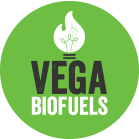What is “Biochar?”
Biochar is a highly absorbent specially designed charcoal-type product primarily used as a soil enhancement for the agricultural industry to significantly increase crop yields. Biochar offers a powerfully simple solution to some of today’s most urgent environmental concerns. The production of Biochar for carbon sequestration in the soil is a carbon-negative process.
Biochar has been used for thousands of years. Early civilizations would chop plant materials then ignite and bury them in the earth and allow them to smolder, which eventually produced a char material commonly referred to as Biochar. This process isolated most of the carbon in the vegetation, creating a particularly hospitable amendment, which in turn nurtured beneficial micro-organisms that transformed the degraded soil to extremely rich and stable humus.
Another product they talk about alot, “Bio-coal.”
What is “Bio-coal?”
Bio-coal is produced using technology called torrefaction. Torrefaction is a partial carbonization process at temperatures between 475 – 575°F (200 – 400°C) in a low oxygen environment. The physical and energetic properties of the biomass are then much more comparable to conventional coal. Once the biomass goes through the torrefaction process, a bonding agent is added so it can be compressed into very dense briquettes called Bio-coal. The torrefaction process has the added benefit of reducing or eliminating undesirable volatiles, such as nitrous oxides and sulfur dioxides in the Bio-coal. Bio-coal is considered carbon neutral to the environment. The key property that makes Bio-coal attractive for co-firing in existing coal-fired power stations is its superior grind ability compared to untreated or fresh biomass. After torrefaction, biomass has lost its tenacious nature and some of its fibrous structure.
The quotes are from their web site.

